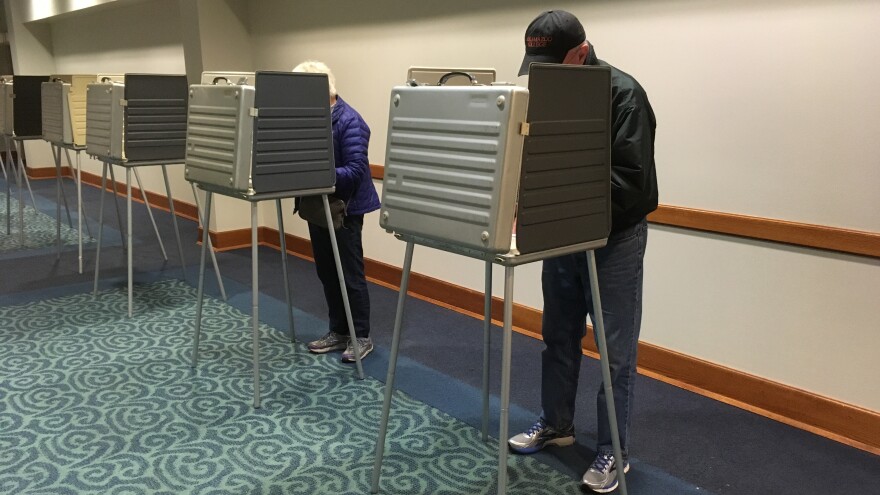The Lansing City Council agreed Monday night to let voters decide in November whether to switch the city’s elections to ranked choice voting.
Under that system, voters would rank candidates for mayor, City Council and city clerk in order of preference. The candidate with more than 50% of first-choice votes wins automatically. If no candidate gets that majority, the candidate with the fewest first-choice votes is eliminated. Results are retabulated until someone gets a majority of first-choice votes.
If ballot measures pass on Nov. 2, ranked choice voting would eliminate Lansing’s nonpartisan primary, saving about $80,000 annually. Lansing's first ranked choice election would happen in 2023.
Jim DeLine, a backer of ranked choice voting, says it makes campaigning less divisive.
"I was going door to door one year for a mayoral candidate and the instructions that they gave us was, ‘If there’s a sign in the yard for my opponent, don’t go knock on the door — that person has already made up their mind,'" DeLine said. "But with ranked choice voting you go to the door anyway and you say, ‘I see you’ve got a sign in your yard for candidate B. Let me tell you about my candidate and the similarities. So if you’re going to vote for your candidate as a first choice, please put my candidate as your second choice.’”
Some City Council members worry ranked choice voting will be confusing. They say people are used to the principle of one person, one vote.
"This is a very unproven election method," Council Member Adam Hussain said of ranked choice voting. "We're actually seeing the opposite of what was intended. We're actually seeing voters disenfranchised."
New York City debuted ranked choice voting for its mayoral primary this summer. But the race plunged into chaos when the Board of Elections released incorrect results and then scrambled to correct them before tallying a mountain of absentee ballots.
DeLine says those problems weren't a reflection of ranked choice voting itself. Initially, New York's Board of Elections mistakenly tabulated test ballots along with the real ones.
In 2019, Eastpointe became the first Michigan city to use ranked choice voting. It adopted the system to settle a lawsuit from the U.S. Department of Justice. That suit argued Eastpointe's winner-take-all system diluted the power of Black voters in citywide council races.






